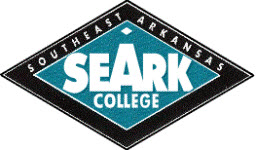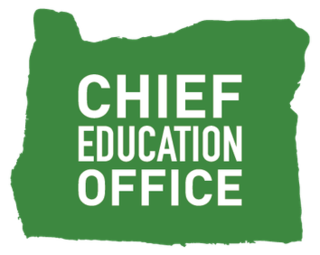The Oregon State Board of Higher Education was the statutory governing board for the Oregon University System from 1929 to 2015. The board was composed of eleven members appointed by the Governor of Oregon and confirmed by the Oregon State Senate. Nine members were appointed for four year terms; two members were students and appointed for two year terms.

Portland Community College (PCC) is a public community college in Portland, Oregon. It is the largest community college in the state and serves 1.9 million residents in the five-county area of Multnomah, Washington, Yamhill, Clackamas, and Columbia counties. PCC enrolls over 83,000 students annually in this area of 1,500 square miles (3,900 km2) in northwest Oregon.
The Council for Higher Education Accreditation (CHEA) is a United States organization of degree-granting colleges and universities. It identifies its purpose as providing national advocacy for self-regulation of academic quality through accreditation in order to certify the quality of higher education accrediting organizations, including regional, faith-based, private, career, and programmatic accrediting organizations.
The Oregon Office of Degree Authorization (ODA) is a unit of the Office of Student Access and Completion, with responsibilities related to maintaining high standards in private higher education institutions in Oregon. ODA administers laws and provides oversight of private colleges and universities offering degree programs in the state, validates individual claims of degrees, enforces the closure of substandard or fraudulent higher education programs in the state, and enforces policy for publicly funded postsecondary programs and locations. It was formerly a unit of the Oregon Student Access Commission (OSAC), which became Oregon Student Assistance Commission prior to January 1, 2012. Its functions moved to the Oregon Higher Education Coordinating Commission as part of the Office of Student Access and Completion in July 2012.
The California Bureau for Private Postsecondary and Vocational Education (BPPVE) was a unit of the California Department of Consumer Affairs whose purpose was to protect students by establishing academic standards for private institutions of higher education in California. BPPVE approval or exemption was required by the State of California to ensure consumer safety from fraudulent or substandard education providers. The agency ceased operation on July 1, 2007, when the legislative authority for its creation expired. A new agency, the California Bureau for Private Postsecondary Education, took its place on January 1, 2010.

Rodney Glenn Ellis is an American politician. He represented Texas' 13th state senate district in the Texas Senate from 1990 to 2017. The district contains portions of Harris County, including downtown Houston, and Fort Bend County. He is a member of the Democratic Party. On June 25, 2016, Ellis won the Democratic Party's nomination for Harris County Commissioners Court Precinct 1. He was elected county commissioner on November 8, 2016 and sworn into office on January 1, 2017.
These organizations for higher education have a common purpose and mission for advocacy in numerous areas of both institutional management and the general public interest. The organizations have specific purpose for issues from faculty unionization to public policy research and service to institutions. Most are focused on the organization and governance of higher and tertiary education, but some are involved in service and research at all levels of education.
The Wisconsin Center for the Advancement of Postsecondary Education (WISCAPE) was established in 2001 on the University of Wisconsin–Madison campus by former UW–Madison Chancellor David Ward.
The California Postsecondary Education Commission (CPEC) was the higher education planning and coordinating agency of the government of the U.S. state of California. It closed in 2011.

New River Community and Technical College is a public community college in Beaver, West Virginia. It was founded July 1, 2003 and is West Virginia's newest college. The college was independently accredited February 8, 2005, by the Higher Learning Commission of the North Central Association of Colleges and Schools. Although newly founded and named, the college's origins span more than one hundred thirty years of service to West Virginia through its two parent institutions, Bluefield State College and Glenville State College.
Career Pathways is a workforce development strategy used in the United States to support workers’ transitions from education into and through the workforce. This strategy has been adopted at the federal, state and local levels in order to increase education, training and learning opportunities for America’s current and emerging workforce.
Floyd Prozanski is an American Democratic politician who is a current member of the Oregon State Senate, representing the 4th District, since 2004. He previously served in the Oregon House of Representatives, from 1995 through 2000 and again for the 2003 session. He resigned from the House in December 2003 to accept appointment to the Senate seat that had been vacated by Tony Corcoran. He won election to the seat in November 2004.

Mark Hass is an American politician from the US state of Oregon. A Democrat, he was the representative for District 14 in the Oregon State Senate from November 21, 2007, until January 10, 2021. He sought the office of Oregon Secretary of State in 2020.
The Kentucky Council on Postsecondary Education coordinates change and improvement in Kentucky's postsecondary education system as directed by the Kentucky Postsecondary Education Improvement Act of 1997. The Council is a statewide coordinating agency with sixteen members: fourteen citizens, one faculty member and one student appointed by the Governor; the Commissioner of Education is an ex officio member.

A diploma mill is an organization that awards academic degrees and diplomas with substandard or no academic study and without academic approval by officially recognized educational accrediting bodies or qualified government agencies. The purchaser can then claim to hold an academic degree, and the organization is motivated by making a profit. These degrees are often awarded based on vaguely construed life experience. Some organizations claim accreditation by non-recognized/unapproved accrediting bodies set up for the purposes of providing a veneer of authenticity.
The National Alliance of Concurrent Enrollment Partnerships (NACEP) is a professional organization for college and high school partnerships offering college courses in American high schools.

Southeast Arkansas College (SEARK) is a public community college in Pine Bluff, Arkansas. Formerly a vocational-technical school, the state legislature designated the school as a college in 1991 with the name Pines Technical College. It acquired its current name in 1998.

Lesbian, gay, bisexual, and transgender (LGBT) people in the U.S. state of Oregon have the same rights and responsibilities as non-LGBT people. Same-sex sexual activity is legal in Oregon, and same-sex marriage has been legal in the state since May 2014 when a federal judge declared the state's ban on such marriages unconstitutional. Previously, same-sex couples could only access domestic partnerships, which guaranteed most of the rights of marriage. Additionally, same-sex couples are allowed to jointly adopt, and discrimination based on sexual orientation and gender identity in the areas of employment, housing and public accommodations is outlawed in the state under the Oregon Equality Act, enacted in 2008. Conversion therapy on minors is also illegal.

The Oregon Chief Education Office was a government agency created by statute in 2014 by the state of Oregon. Its stated mission was "to build and coordinate a seamless system of education that meets the diverse learning needs of Oregonians from birth through college and career," through the efforts of five subsidiary divisions also created or relocated from elsewhere in the state government's organizational hierarchy to come under its leadership by the same statute:
The Oregon Office of University Coordination is the agency designated by the Oregon Higher Education Coordinating Commission (HECC), established in 2013 under ORS § 352.002, to provide academic and fiscal coordination for seven public universities in Oregon. Beginning 2015–2016, the Office of University Coordination was authorized to process academic program approval through the HECC, make budget recommendations for public universities in Oregon, and allocate funds using a model for student success and completion. Effective July 1, 2014, three universities broke away from the Oregon University System. Effective July 1, 2015, the remaining four universities also became independent.









